Sunday Feb 15, 2026
Sunday Feb 15, 2026
Thursday, 21 February 2019 01:30 - - {{hitsCtrl.values.hits}}
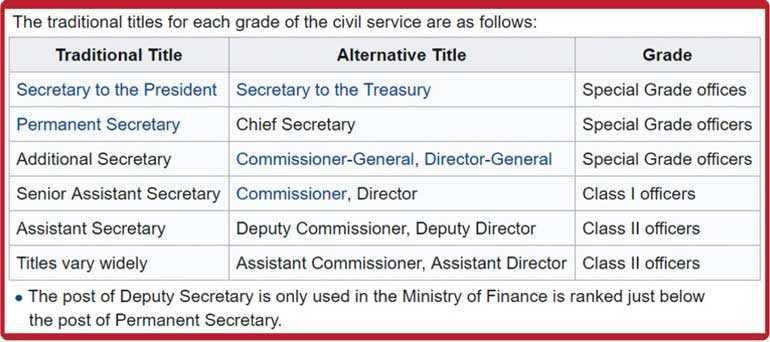
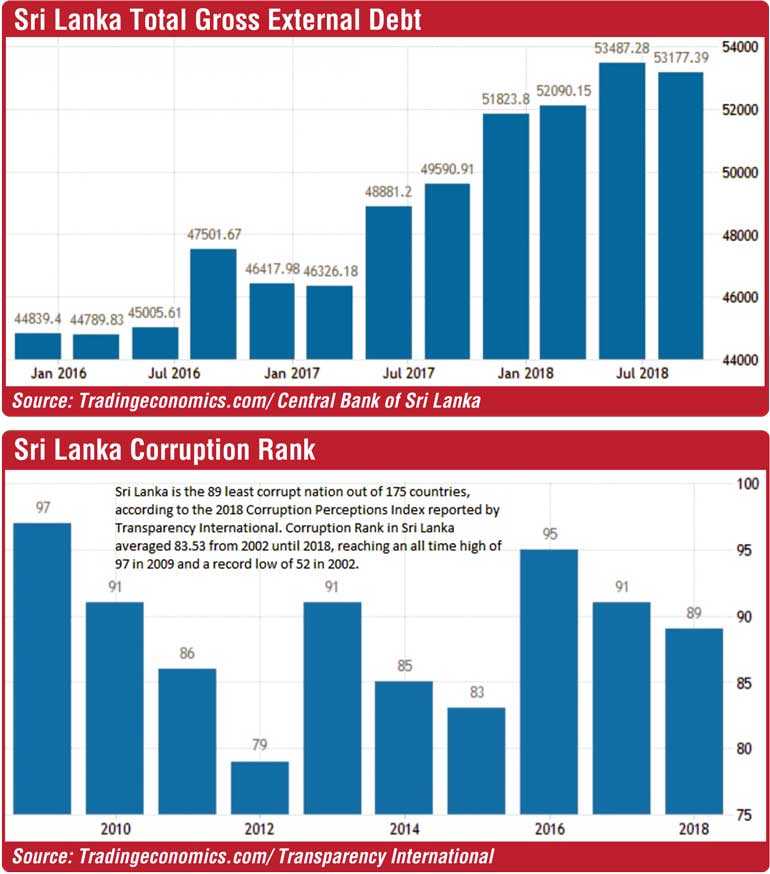
Member of the Commission to Investigate Allegations of Bribery or Corruption Neville Guruge said 25% of the 1.5 million public servants in Sri Lanka were corrupt and that their malpractices were going on unchecked due to the lethargic attitude of the other 75% who only boast about their honesty. 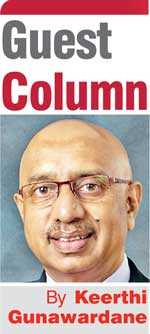
Addressing a seminar at the Gampaha Yasodara Balika Vidyalaya organised with the view to create awareness among the principals and the teachers on the endeavour to create a just society, he mentioned only the countries that eradicated corruption could achieve their development targets. He further emphasised the importance of principals and teachers to create a just society inculcating the social values to avoid corruption.
Today we observe one of the biggest problems in Sri Lanka is many public officers do not know their responsibility or do not take the responsibility which they should take. The other set of officers do not understand neither their responsibility nor the accountability.
I think Neville Guruge was talking about the 75% who only boast about their honesty is falling to the category two. I think this is the extremely dangerous one more than the corrupt officers. Albert Einstein once said: “The world will not be destroyed by those who do evil, but by those who watch them without doing anything.”
Who are the senior officers?
The Sri Lanka Administrative Service (SLAS) is the key administrative service of the Government of Sri Lanka, with civil servants working for both in the Central Government as well as in the Provincial Councils. It was formed as the Ceylon Administrative Service (CAS) in 1963 as the successor to the Ceylon Civil Service which was abolished on 1 May 1963.
Based on the British Civil Service, the SLAS is the permanent bureaucracy that helps the elected officials on day-to-day functions of the Government. They are selected, promoted by the Public Service Commission. But top positions in the Government such as Permanent Secretaries are appointed by the President, in theory on the recommendations of the Public Service Commission.
A Permanent Secretary is the top bureaucrat of the Government Ministry and is responsible for the day-to-day functions of the ministry whereas in theory, the minister is responsible only for drafting policy. The head of the SLAS is the Secretary to the President.
A Chief Secretary is a Special Grade officer of the Sri Lanka Administrative Service in the provinces which is equivalent to a Permanent Secretary of the Central Government known as Chief Secretary. There are nine Chief Secretaries, one for each of the nine provinces.
How do we produce senior officers?
Back in the day, most university graduates dreamed to join the Administrative Service which was considered the most sought-after career prospect which was only available to the brightest of the batch. 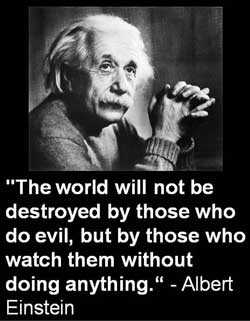
This group of people is vested with the power and the authority to manage the highest positions in the country who should be held accountable to the citizens of the country. Is this happening today? Apparently not.
If we take the Singaporean example, they started as a third-world country far below us and gone up to the first-world now. The good leadership made Singapore disciplined and economically established over the last few decades.
Today, they are one of the most credible countries in the world and there too the recruitment to the administrative service is similar to that in Sri Lanka where the best of the best is selected form the local universities.
What went wrong in Sri Lanka?
It is evident that most of the Sri Lanka Administrative Service officers up to now are the products of our local universities under our free education system. Their expenses were borne by the people of Sri Lanka. Citizens of the country expect them to give something back to the country in terms of providing an efficient and honourable service back to them.
The officers joining the Sri Lanka Administrative Service too should understand that they have a moral commitment to serve the people in a better manner to improve their quality of life.
At the last Independence Day speech, the President stated the efficiency of the 1.6 million government servants are only 30%. He said at least this should turn to 70%. The biggest grievance from the officers’ side has always been that the politicians interfere with their jobs. In addition to political interference, inadequate facilities, poor salaries, corruption and bribery infests the entire public sector.
However, if the public officers have no initiative from them to improve the country by doing an efficient honourable job, there is no hope of improvement in the economy of the country or their own betterment in terms of better facilities and salaries.
Recent case study
The Director General (DG) of the Sri Lanka Customs was one of the credible Sri Lanka Administrative Service officers. She was a graduate of the University of Jaffna and a holder of two Masters Degrees from the Universities of Peradeniya and Rajarata. She was a Special Grade Officer of the Sri Lanka Administrative Service who has served as the Additional Government Agent and the Government Agent of Vavuniya.
When she was appointed to this position, there were concerns on how she can handle this complex institute. She proved herself to be a competent person, taking the right decisions at the right time. She developed goodwill among the staff, Chambers and the other business institutions deal with the Customs. Took strong decisions even to the extent of sacking the corrupt officers at Customs who were involved with various corruptions.
At the time she was removed due to alleged political interference from the DG position, all customs unions with the support of all the trade chamber came forward to protect her. This is a good case study, if a good officer has done a straight job, the people of the country will come to protect such good officers. Finally, the same Minister who proposed the removal proposed the withdrawal of the removal too.
Corruption
Corruption has become very complex today due to various local and global reasons. The World Bank and Transparency International view corruption as the use of one’s public position for illegitimate private gains. According to the International Chamber of Commerce the greatest impact of corruption is on the poor people who are least able to absorb its costs.
Transparency International – Corruption is increasingly cited as a reason for withholding foreign aid or debt relief. If a country’s inability to pay interest on its loans is due to its leaders siphoning off national earnings into their own bank accounts.
Transparency International further explains the cost of corruption as follows. Corruption impacts societies in a multitude of ways. In the worst cases, it costs lives. Short of this, it costs people their freedom, health or money. The cost of corruption can be divided into four main categories: political, economic, social and environmental.
On the political front, corruption is a major obstacle to democracy and the rule of law. In a democratic system, offices and institutions lose their legitimacy when they’re misused for private advantage. This is harmful in established democracies, but even more so in newly emerging ones. It is extremely challenging to develop accountable political leadership in a corrupt climate.
Economically, corruption depletes national wealth. Corrupt politicians invest scarce public resources in projects that will line their pockets rather than benefit communities, and prioritise high-profile projects such as dams, power plants, pipelines and refineries over less spectacular but more urgent infrastructure projects such as schools, hospitals and roads. Corruption also hinders the development of fair market structures and distorts competition, which in turn deters investment.
Corruption corrodes the social fabric of society. It undermines people’s trust in the political system, in its institutions and its leadership. A distrustful or apathetic public can then become yet another hurdle to challenging corruption.
Environmental degradation is another consequence of corrupt systems. The lack of, or non-enforcement of, environmental regulations and legislation means that precious natural resources are carelessly exploited, and entire ecological systems are ravaged. From mining, to logging, to carbon offsets, companies across the globe continue to pay bribes in return for unrestricted destruction.
When we study the recent story of Makadure Madush, his involvement with drugs, great relationships with politicians and the artists of Sri Lanka tells us a dark story of the kind of things happening similar to the most corrupt countries.
There is no doubt that the lower growth rate prevailing in Sri Lanka at present mainly due to political uncertainties and corruption. This leads to lower the foreign direct investments which we really need at this hour to move the country forward. Even in South Asia we are doing far below the potential. We should be very sad and shamed about our performance having such talented educated people in Sri Lanka and yet having a bleak future as a country due to corrupt politicians.
If we study our present debt situation, we have to understand all kinds of corruption finally become a burden to the society and the people in the country.
Who is responsible?
There is no doubt from the head of state of a country that every citizen is responsible for the country and its economic and social status. 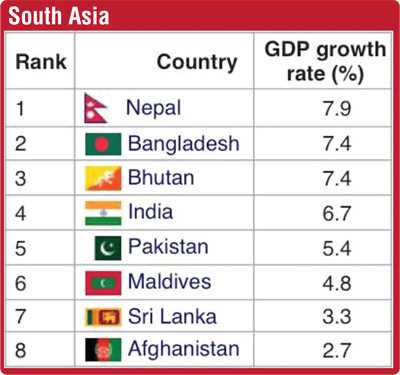
According to the President’s website, his introduction is as follows. President of the Democratic Socialist Republic of Sri Lanka – Pallewatte Gamaralalage Maithripala Yapa Sirisena, known as Maithripala Sirisena, is the 6th Executive President of Sri Lanka. He was born on 3rd September 1951 to a middle-class farming family. He joined mainstream politics in 1989 and has held several ministerial portfolios since 1994.
He is the President of the Sri Lanka Freedom Party (SLFP), he was the longest serving General Secretary. He was selected as the Common Candidate of the Presidential Election to be held on 8th January 2015, where he won the support of the people of Sri Lanka to change the regime to build a better governance and an economically prosperous Sri Lanka for everyone.
In the website, it further explains that Maithripala Sirisena is a rare breed of a gentleman politician in today’s political landscape, a politician with an impeccable track record, untainted by either violence or corruption. Maithripala is a political leader with a genuine national appeal. The son of a farmer, he had practiced a brand of centrist, moderate and clean politics, which characterises the best in Sri Lanka’s political culture.
The general public of this country has a big question today. Is the President doing what he has promised the people of this country before he came to power? Has the key promises in his manifesto to minimising corruption, uplift economic development, establishing law and order, better media freedom, upholding democracy been realised over the past few years? Has he lead by example to drive this country into a nation of Good governance (Yahapalanaya)?
Secondly, Sri Lanka Administrative Service officers, as the most responsible stakeholders, should manage the country by providing decent and efficient work rather than giving excuses to the people. If this happens, there will be some light at the end of the tunnel.
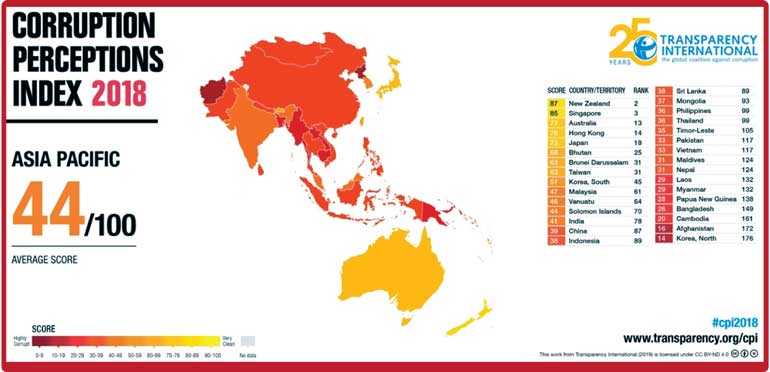
(The writer is an Economics Hons Graduate from the Sri Jayawardenepura University, Immediate Past President of the International Chamber of Commerce and the Vice President of the Federation of Chamber of Commerce and Industries Sri Lanka.)